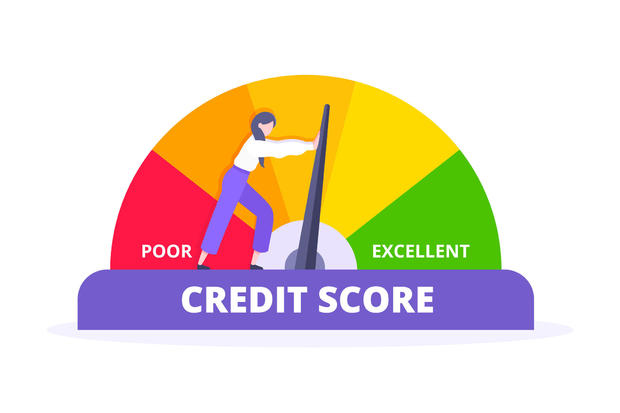How debt relief can improve your credit score
If you're thinking about enrolling in a debt relief program, you may be apprehensive about the impact doing so could have on your credit score. After all, these services may cause your score to fall, making it more difficult to access loans and credit lines with reasonable interest rates and terms in the future.
But while some debt relief services, like debt settlement, tend to have a long-term negative impact on credit scores, the negative effect of others, like debt consolidation and management, may be relatively minimal. And these programs could help you improve your credit score over time.
But how can debt relief help increase your credit score? We've outlined some ways below.
Learn how debt relief could improve your credit here now.
How debt relief can improve your credit score
Although debt relief may hurt your credit score early on, it may help you improve it over time. Here's how:
It can improve your credit utilization ratio
Your credit utilization ratio compares the amount of revolving debt you owe to the amount of credit you have available on those accounts. And, according to Experian, it can account for as much as 30% of your credit score.
"Debt relief can help you lower your outstanding debt, thereby increasing the amount of credit you have available," explains Noah Damsky, CFA, principal at Marina Wealth Advisors, a financial planning firm. "This can lower your credit utilization ratio, which can improve your credit score."
There are a couple of ways debt relief may improve your credit utilization ratio:
- Debt consolidation: If you consolidate your debts with a new loan at a lower interest rate, and don't close your current accounts, you could immediately improve your credit utilization ratio. That's because doing so will reduce your utilization of the credit lines you pay off to 0%.
- Debt management: Debt management is designed to help you pay your debts down faster. And, your credit utilization ratio should improve as you do - which could improve your credit score.
And, debt relief services can help your debt-to-income ratio. "By seeking debt relief, your ultimate goal is to alleviate the debt you owe," explains Jordan Mangaliman, CEO of the financial planning firm, Goldline Financial Services. "By reducing your debt, you improve your debt-to-income ratio. When you apply for lending again in the future, lenders will find it favorable that your credit utilization is low while at the same time, you have a low debt-to-income ratio."
It can improve your payment history
If you're struggling to make your payments, there's a high probability that you've either missed a payment or been late on some of them in the past. And, late and missed payments can hurt your credit score. But, a debt relief service could help with that, too.
Debt relief companies typically attempt to cut your payments, making it easier for you to make them on time. And, as you make your payments on time, you'll improve your payment history, which could lead to a better credit score.
It can lead to paid-off accounts
Depending on the number and type of accounts you have, paying them off may improve your credit score. For example, if you pay off your credit cards your credit utilization ratio will fall, helping your score. That is, as long as you leave your accounts open. Moreover, if you have accounts in collections, they may hurt your credit score. So, you could improve your credit by paying them off.
But, there's a caveat to consider.
About 10% of your credit score depends on your credit mix. So, it's important to have different types of credit accounts. However, if you only have one installment loan, for instance, paying it off could hurt your credit mix, which could cost you a few points on your credit score.
The bottom line
Debt relief can harm your credit score. But, debt relief's negative impact on your credit score may not last long, depending on the type of debt relief you choose. In fact, debt consolidation and debt management can help you improve your score over time. Chat with a debt relief expert now to learn how enrolling in a program may help you increase your credit over time.
